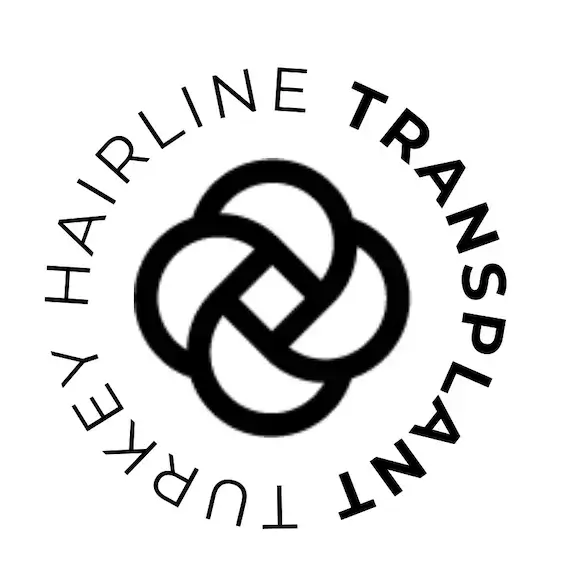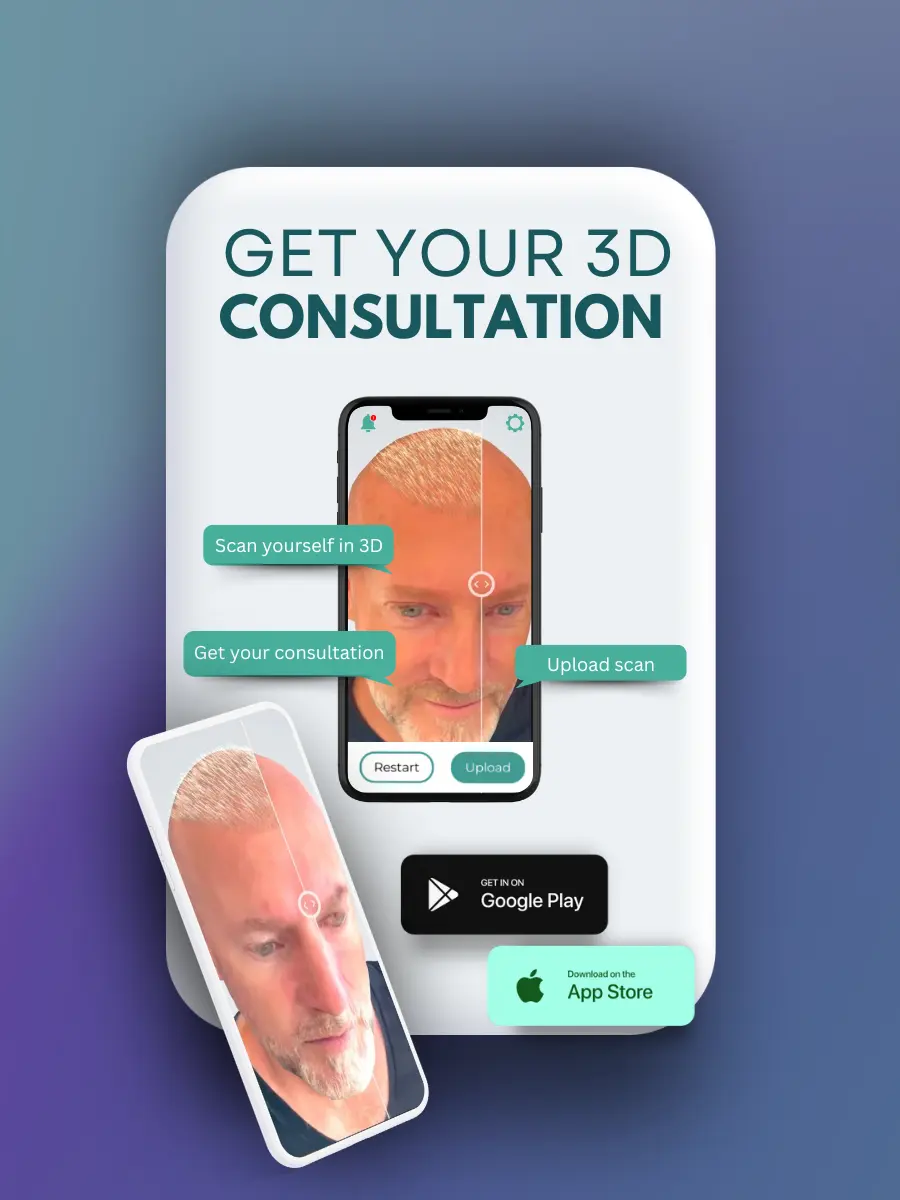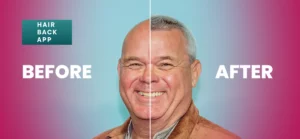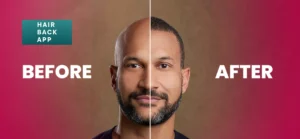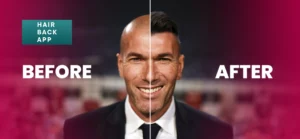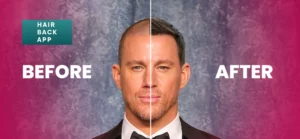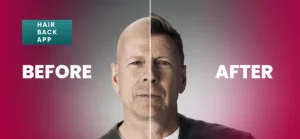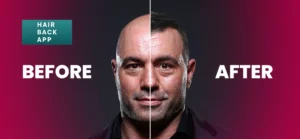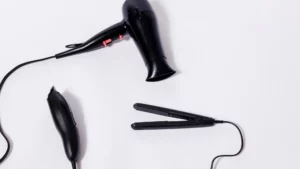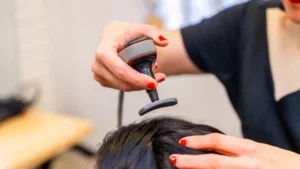Pre-surgery hair optimization is a crucial step in preparing for a successful hair restoration journey. Many people undergoing hair transplant surgery focus solely on the procedure itself, overlooking the importance of preparing the scalp and existing hair beforehand.
In reality, pre-surgery hair optimization can significantly improve the success of the surgery and ensure the best possible outcomes.
Whether you’re considering PRP for hair loss, using microneedling for hair loss, or exploring saw palmetto for hair loss, taking proactive steps before your hair transplant can make a substantial difference.
Understanding how to prepare your scalp, hair follicles, and overall health will not only improve the healing process but also contribute to better graft survival. Pre-surgery hair optimization is not just about achieving a healthy scalp, but also about positioning yourself for long-term success after the procedure.
In this article, we will explore the various ways you can optimize your hair before surgery to ensure your hair restoration journey is as smooth and effective as possible.
Understanding the Importance of Pre-Surgery Hair Care
Pre-surgery hair care is more than just a cosmetic concern; it plays a pivotal role in the overall success of your hair restoration procedure. Healthy hair follicles and a well-maintained scalp environment are crucial for the success of hair transplant surgeries.
If you’re considering FUT and FUE hair transplants, it’s essential to understand that the condition of your scalp and hair will directly impact how well the transplanted hair will take root and grow.
The health of your hair follicles affects the likelihood of the transplanted grafts surviving and thriving. Scalp health also contributes significantly to post-surgery recovery, as it affects how well the skin heals and how quickly new hair growth will appear.
A nourished scalp promotes faster healing and helps prevent complications like infections or irritation, ensuring that you achieve the most desirable outcome from your surgery.
Moreover, improving the overall health of your hair follicles before the procedure can reduce the need for follow-up treatments. If your existing hair follicles are in poor condition, there may be a risk of further thinning post-surgery, which could lead to the need for additional procedures.
Pre-surgery hair optimization helps avoid these issues, setting the stage for long-term hair growth success.

Key Pre-Surgery Hair Optimization Tips
To achieve the best possible results from your hair restoration surgery, optimizing the health of your hair and scalp in the lead-up to the procedure is essential.
Pre-surgery hair care can significantly influence the success of the transplant, the survival of the grafts, and the overall growth rate of your new hair.
By following the right steps, you can create an ideal environment for hair follicles to thrive, ensuring that your transplant produces natural, long-lasting results.
Below are some of the most effective tips to help you prepare your hair and scalp before surgery, ensuring that you’re giving yourself the best chance for success.
Nutrition and Hydration
Good nutrition is vital for healthy hair growth. Nutrients like biotin, zinc, vitamin D, and iron are known to promote hair follicle health. A well-balanced diet rich in these nutrients will ensure your hair is in the best possible condition before surgery. Include foods such as leafy greens, nuts, seeds, eggs, and lean proteins, all of which are essential for hair strength and vitality.
Hydration is just as important. The health of your scalp and hair is largely influenced by how well-hydrated your body is. Aim to drink plenty of water each day to keep your scalp moisturized and to support the overall health of your hair.
Scalp Treatments and Topical Applications
Using effective scalp treatments can help optimize the environment for hair follicles. PRP for hair loss is one such treatment that has gained popularity as a pre-surgery option. Platelet-rich plasma injections can stimulate the scalp, improving hair follicle health and potentially enhancing the success of a hair transplant.
Microneedling for hair loss is another promising option that creates micro-injuries in the scalp, stimulating collagen production and increasing blood flow to hair follicles. Combined with topical treatments like minoxidil or natural oils such as peppermint oil, these treatments can create an ideal scalp condition for transplant success.
For general scalp care, consider gentle, sulfate-free shampoos and conditioners to maintain a healthy scalp environment without stripping it of its natural oils.
Avoiding Stress and Lifestyle Adjustments
Stress is one of the primary contributors to hair thinning and loss. Reducing stress through techniques like yoga, mindfulness, or regular physical exercise can help ensure the health of your hair before surgery. Additionally, maintaining healthy sleep patterns will support the regenerative processes needed for hair growth and overall well-being.
Stress management also contributes to a healthier healing process post-surgery. When your body is in a more relaxed state, it heals faster, and your scalp can recover more effectively after a transplant.
Medical Preparations and Consultations
Before undergoing any hair restoration procedure, it’s important to consult with a healthcare provider to ensure you’re in optimal health.
Discuss any existing medical conditions, like thyroid problems or hormonal imbalances, that could affect hair growth.
If you are on medications such as blood thinners or other treatments, inform your surgeon about them, as some medications can hinder healing or interfere with the success of the transplant.
Hair Loss Treatments to Consider Before Surgery
Several non-surgical hair loss treatments can complement pre-surgery hair optimization, boosting the health of your scalp and hair follicles.
For example, PRP for hair loss is a treatment that uses your own blood to stimulate hair follicles, encouraging hair regrowth and improving scalp conditions. Many people undergo PRP therapy as a preparatory step before surgery to enhance the results of their transplant.
Microneedling for hair loss is another treatment that has gained attention for its ability to stimulate the scalp and improve blood circulation to hair follicles. By promoting better follicle health, microneedling can contribute to stronger and thicker hair, making it a valuable addition to pre-surgery optimization.
Other treatments to consider include the use of herbal supplements such as saw palmetto for hair loss. Saw palmetto has been shown to block DHT (dihydrotestosterone), a hormone linked to hair loss, making it a natural option for those preparing for hair restoration surgery.
While these treatments alone may not fully prevent hair loss, they can certainly improve the chances of a successful surgery when combined with other pre-surgery optimizing steps.
How to Choose the Right Hair Transplant Clinic
Choosing the right clinic for your hair transplant surgery is an essential part of the pre-surgery preparation process. A reputable clinic will not only perform a successful procedure but also offer valuable advice on how to optimize your hair health before surgery.
Start by researching clinics that specialize in FUT and FUE hair transplants, as these are two of the most common methods used today. Look for clinics with certified surgeons who have extensive experience in these procedures. Checking patient reviews and before-and-after photos is a good way to gauge the clinic’s success rate and quality of service.
During your consultation, ask the surgeon questions about their approach to pre-surgery care, including recommendations for optimizing hair health.
The questions to ask during hair transplant consultations should cover everything from the surgeon’s experience to their protocols for pre-surgery hair care. It’s important that you feel comfortable and confident with the clinic and surgeon you choose.
A transparent clinic will take the time to walk you through the entire process, including pre-surgery and post-surgery care, ensuring you understand the steps to take for the best possible results.
Avoiding Common Mistakes Before Surgery
There are several common mistakes that people make when preparing for hair restoration surgery. One of the biggest errors is overusing hair growth products, such as minoxidil or other topical treatments, without consulting your surgeon. While these products can be beneficial, excessive use could irritate your scalp or interfere with the surgery.
Having unrealistic expectations is another common pitfall. Hair restoration surgery is a gradual process, and results can take time to fully appear. Understanding the timeline and what to expect post-surgery will help manage your expectations and reduce disappointment.
Lastly, ignoring professional advice can hinder the success of your procedure. If your surgeon recommends specific pre-surgery hair optimization treatments or lifestyle changes, it’s crucial to follow their guidance closely for the best results.
What to Expect in the Days Leading Up to Surgery
In the final days before your hair restoration surgery, it’s important to follow the pre-surgery instructions provided by your surgeon. This may include stopping certain medications, avoiding alcohol or smoking, and adhering to any special hygiene requirements.
Mentally preparing for the procedure is just as important as physically preparing your body. Understand that the surgery is only one part of the process, and post-surgery care will be crucial for the long-term success of your transplant. Prepare yourself for the recovery process by reading up on what to expect in terms of healing time, possible side effects, and when you can expect to see results.
Make sure you have everything in place for the day of the surgery, such as comfortable clothing and any necessary medications. Consider bringing a friend or family member to provide support during the procedure and help you through the recovery phase.
Conclusion
Pre-surgery hair optimizing is a vital step in preparing for a successful hair restoration journey. By focusing on scalp health, proper nutrition, and using treatments like PRP for hair loss and microneedling for hair loss, you can set yourself up for the best possible results.
Remember, selecting the right clinic and adhering to pre-surgery care recommendations will contribute to a smoother and more successful hair transplant experience.
Take the time to optimize your hair before surgery, follow professional advice, and manage your expectations. By doing so, you’ll not only ensure a successful procedure but also enjoy long-term hair growth and confidence in your results.
